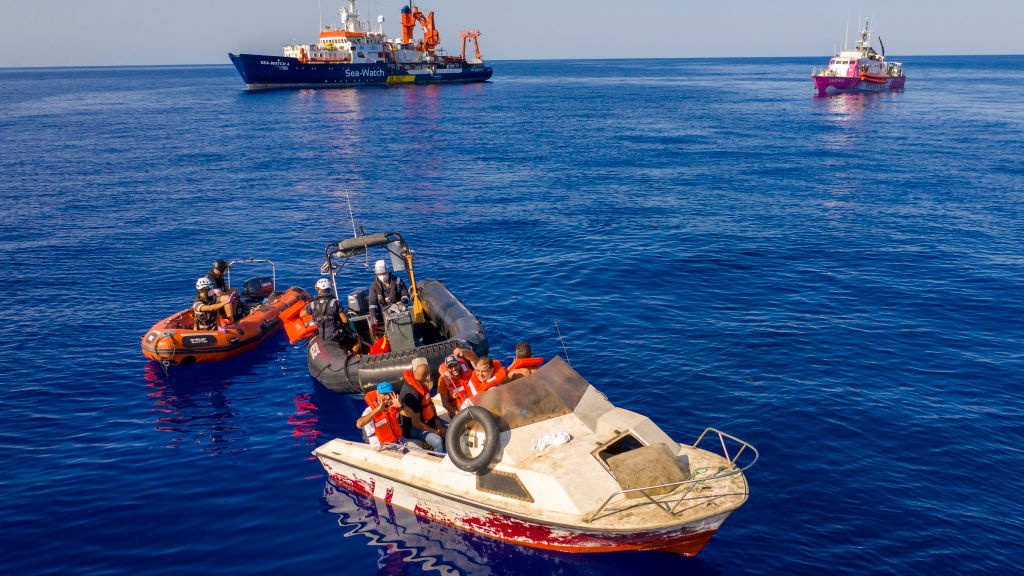Greece's government is facing widespread criticism for its decision to push migrant boats back out into the Mediterranean Sea, effectively condemning many of those on board to death or inhumane conditions.
According to The New York Times, Greek officials have quietly forced out more than 1,000 refugees, taking those who arrive by boat and sailing them back out to the edge of Greek territorial waters. Often the Greek government leaves refugees stranded in the middle of the ocean in overburdened life rafts or inflatable boats that can easily sink.
The newspaper reviewed documents from three independent watchdogs, two academic researchers and the Turkish Coast Guard, proving that in at least 31 separate instances, the Greek government abandoned at least 1,072 migrants at sea. The act of taking migrants and pushing them back out to sea to die within the European Union violates the law, according to DW.com.
“It was very inhumane. I left Syria for fear of bombing — but when this happened, I wished I’d died under a bomb,” Najma al-Khatib told The New York Times in an interview.
Al-Khatib said on July 26, masked Greek officers took her, 20 others and two babies out of a detention center on the island of Rhodes. Officials put them on life rafts in pitch-black darkness and they were left in the middle of the sea on a raft with no motor.
Thankfully, the Turkish Coast Guard rescued them, but others told the newspaper of even more explosive actions by the government of Greece.
Some migrants said Greek officers intentionally disabled the motor or engine of a boat and left people to float in the sea. The Turkish Coast Guard published a video of the rafts.
Non-profits began reporting on the crisis in April and the pushback has only increased over the past few months.
Greek officials have denied illegal activity, telling the newspaper that the country does "not engage in clandestine activities."
But for years, Greek citizens have expressed fury at the position the rest of Europe has put them in. Since 2015, thousands of migrants primarily from Africa and the Middle East have tried to sail across the Mediterranean Sea to either Greece or Italy in hopes of a better life.
Originally, the European Union began working with the governments in Turkey and Libya to controversially keep migrants off of boats and away from Greece and Italy. But that deal has begun to crumble as Turkey itself has become home to millions of Syrian immigrants fleeing a civil war.
Greek officials have accused Turkey of essentially weaponizing migrants and sending them out to Europe in hopes that they will receive a more lucrative, favorable deal from the European Union, according to The New York Times.
François Crépeau, a former United Nations special rapporteur on the human rights of migrants, told the newspaper that human rights advocates have long suspected that Greece was expelling migrants before they made it to shore. But now that Greek officials are taking people who have already made it and forcing them back out, the situation has reached another level of illegality, Crépeau said.
“These pushbacks are totally illegal in all their aspects, in international law and in European law. It is a human rights and humanitarian disaster,” he said.
“They’ve seized the moment. The coronavirus has provided a window of opportunity to close national borders to whoever they’ve wanted,” Crépeau added, noting that migrants are even being denied the ability to apply for asylum.
Sadly, there has been a widespread backlash against migration throughout Europe, leading to a situation where few countries are politically willing to criticize Greece for its recent actions.
Niamh Keady-Tabbal and Itamar Mann published an investigative piece detailing the experiences of migrants who explained how they were taken from refugee camps and placed onto unsafe rafts with no motors before being pushed out to sea, according to Just Security.
Migrants shared dozens of photos and videos depicting what the Greek coast guard had done to them.
“They told us they would take us for a Corona test, and then we would be given our belongings back and transferred to Athens. They put everyone in…children, women, elderly, and young people. They didn’t leave anyone in the ship,” a refugee told Keady-Tabbal.
